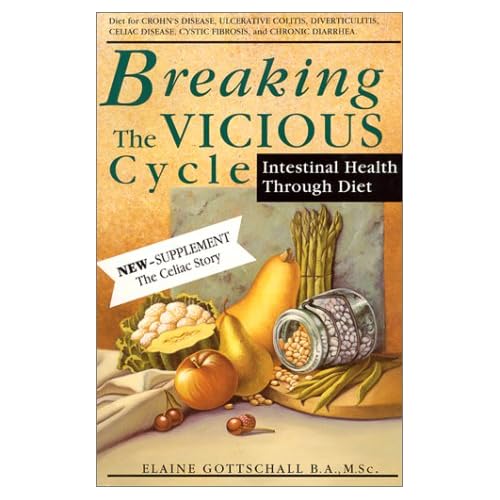Based on my research and conversations with doctors, conventional medicine tends to downplay the role of diet in gastrointestinal disorders such as ulcerative colitis. It is thought to play little or no part in causing or treating symptoms, and advice is limited to avoiding irritating, high-fiber, or spicy foods during a flare-up. When things are going OK, I've been told, you can "eat whatever you want," since diet is not the root of the problem.
This makes very little sense to me, especially considering the following quote from the Bahá'í Writings:
When highly-skilled physicians shall fully examine this matter, thoroughly and perseveringly, it will be clearly seen that the incursion of disease is due to a disturbance in the relative amounts of the body's component substances, and that treatment consisteth in adjusting these relative amounts, and that this can be apprehended and made possible by means of foods.
Selections from the Writings of `Abdul-Bahá, no. 134

Thanks to the wonders of the internet, I've discovered that there is indeed a diet designed especially for people who suffer from diseases like Crohn's, ulcerative colitis, celiac disease, and irritable bowel syndrome. And there are many, many examples of people for whom it has been incredibly successful.
The diet is called the Specific Carbohydrate Diet, and is laid out in the book
Breaking the Vicious Cycle: Intestinal Health Through Diet by Elaine Gottschall. There is also an official website that contains much of the information found in the book:
breakingtheviciouscycle.info.
In a nutshell, the diet limits carbohydrate intake to simple sugars, which are able to be easily absorbed by the body, unlike complex sugars and starches which are incompletely digested and provide sustenance for undesirable intestinal flora.
The diet eliminates all grains, starches, added sugars (except for honey), processed foods, most dairy (except for homemade yogurt, natural cheeses, and dry-curd cottage cheese), chickpeas, soy, potatoes, and yuca, among other things.
Now that forbidden list contains many things I'm fond of (particularly pasta, rice, tofu, falafel, hummus, pita, etc.) But the good news is that almost everything else is allowed, including my all-time favorite avocado, as well as lentils and tea. Furthermore, there are abundant recipes to make alternative, SCD-compliant versions of many dishes that look absolutely delicious. For a sampling, check this site:
scdrecipe.com.
I've already started to follow the SCD to the extent possible in the hospital, and I look forward to getting into the full swing of it once I'm discharged. I see the following advantages in it:
- I will be forced to do most of my own cooking. It has always been a goal of mine to cook more (something I enjoy doing) and this will help me do that. The fact that I work from home makes it rather convenient as well.
- Eating out less and using all-natural ingredients will be much healthier overall for my body.
- New dietary parameters will allow me to develop my culinary creativity.
- Etc, etc.
I'm rather excited about this opportunity, and hopeful that it will help me get my colitis under control, as it has for so many others.

